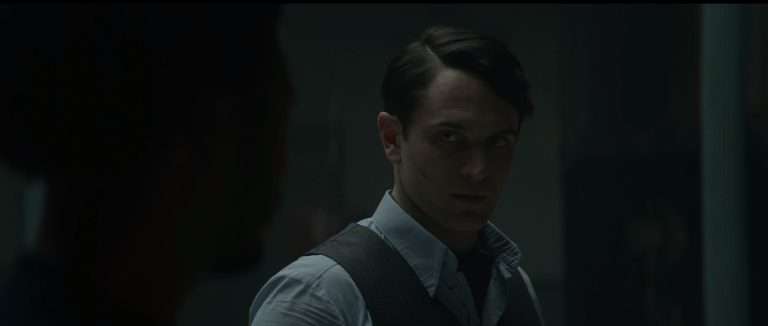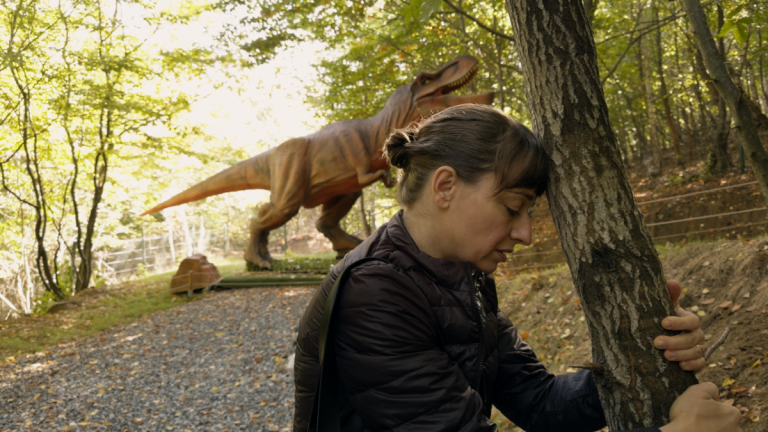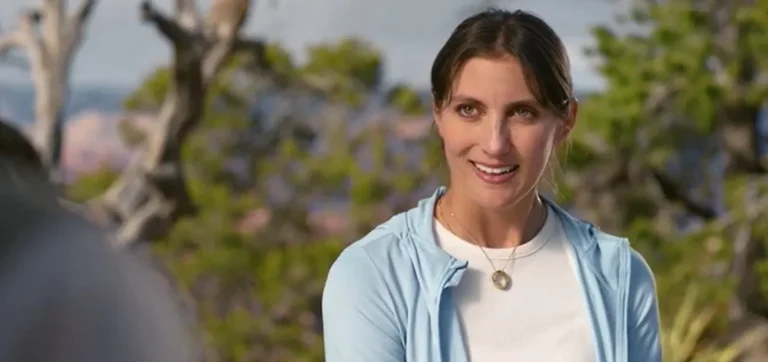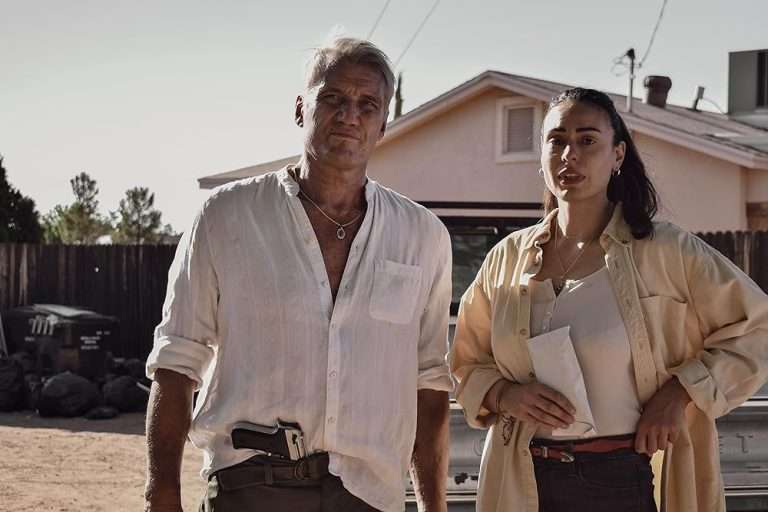Ang Lee’s Crouching Tiger, Hidden Dragon (2000) review:
In Jianghu, there are crouching tigers and hidden dragons, just as there are in men’s hearts. Blades and swords conceal evil, just as men’s emotions do….
A wuxia tale woven in the turbulent heart of the Qing dynasty, Ang Lee’s Crouching Tiger Hidden Dragon (2000) chronicles the clash of blades, the intrigues and intricacies of a bygone era, and the aspirations and anticipations of its people ensnared in it. With traditional siheyuans, pinyin scriptures, and elegant qipaos, the film blows the dust off ancient legends in all their glory and gravity. However, the scenario is not very different from now: there are women flouting repressive dictates, and warriors are at war with their hearts and rubrics ruling personal lives over resolve.
The narrative makes inroads through the escapades, elopement, and reflections of Yu Jiaolong, who, stifled in her aristocratic hearth, dissipates her passion through martial practice. She emerges as the prototype female rebel self-trained in wielding weapons, fleetness, and flexibility- the gen of which she acquired from the cryptic edicts of Wudang stolen by her governess, Jade Fox, an outlaw who sheltered herself in their household. Zhang Ziyi’s character in this film parallels her later role of Mei (in Zhang Yimou’s political drama House of Flying Daggers), an undercover dancer in the twilight of the Tang Dynasty: equally wily, wayward, driven, and yet just as indecisive.
The art of combat in Crouching Tiger, Hidden Dragon (2000) represents not just a mere display of talent, but a communion of the spirit with the body, a play of emotions, an equalizing of fire and water to shield the self, not only from the enemy but from one’s excesses of paroxysm. The yin and yang of this perfect energy are symbolized by Li Mu Bai (Chow Yun Fat) and Shu Lien (Michelle Yeoh), who balance their storms with calm and tackle disorder with tact. Not only do they kowtow to the Confucian code of ethics, but deep down, they exhibit an interplay of harmony and opposition. Connected by their feelings for each other, the force of which is withheld from consummation to honor Li Bai’s deceased master, who had been betrothed to Shu Lien.
The other cosmos, belonging to Yu Jiaolong and Luo Xiao Hu, embody chaos, wrath, and passion right from their first encounter in the loess sands, where Hu led a bandit uprising to disrupt her wedding caravan in Beijing. In Mandarin, the ‘long’ and ‘hu’ in their names translate as ‘dragon’ and ‘tiger’ respectively, thereby underscoring the film’s title: a tempest of free-spirited souls. On a spiritual level, it alludes to the dark side of the human psyche, its slumbering temptations and feral violence, which are unveiled in extremity.
Perhaps Crouching Tiger, Hidden Dragon’s (2000) most memorable scene is the swordplay between Jiaolong and Li Mu Bai, hovering amidst the bamboo trees, lithe as a feather, oscillating in a nebula of green as if in a dream. They fly, surmounting space and bodily limitations; their feet beating against some invisible force that seems to be pulling them back to Earth.
The traditional music playing in the Sylvan panorama further dramatizes the buoyant, dance-like movements in the fight sequences. The rhythm of their bodies aesthetically synchronizes with the highs and lows of the erhu, conveying both the solemnity and exigency of the moment. While Li Bai’s line of attack is more tranquil and calculated, Jiaolong’s is more frenzied, and the erhu plays accordingly to complement their individual veins.
The Chinese dragon is an emblem of tenacity and adaptability, and Jiaolong proves her capacity for both as she singlehandedly dragoons ruffians who stand in her way. Jade Fox counters her opponents’ advances with the same agility; her battle cry screams shrill vengeance. The black robes, feline instincts, use of witchcraft and base, and ignoble means of defeat like poisoned arrows establish her as the flesh-and-blood incarnation of the animalistic human, left embittered by the injustices meted out to her in this life.
Shu Lien evokes the legendary Hua Mulan in her virtue, empathy, and frugality. Even Yu admits her envy and admiration for their way of life. However, unlike the deified epic heroes, Li Mu Bai finds little solace in his feats and meditation, as he confesses to Shu Lien: “I didn’t feel the bliss one should feel when enlightened. Instead, I was surrounded by an endless sorrow. It was more than I could take.”
Bestowing his illustrious sword Green Destiny to Sir Te was Li Bai’s act of liberating himself from the worldly burden of claiming lives, a lesson Yu too would learn in time; for it was the kind of life that came with a price. Her agenda of stealing Green Destiny is never revealed, but the times she risked her life over its possession expresses a palpitating, almost inflammable desire to hold her world in her own hands instead of leaving it to others’ discretion.
In the end, she couldn’t write her destiny but sealed it by enacting a tragedy of yore- the same legend recounted to her by Luo about a son who dived into the depths in full faith of his parents’ convalescence: “He didn’t die. He wasn’t even hurt. He floated far away, never to return….” Jiaolong envisions her end the same way, to shear off her ties from this world or perhaps in search of enlightenment. She jumps off the cliff, with arms wide open, like a bird, as if to embrace wholeheartedly the state of grace that awaits her.



![Boys State [2020] Review – A Pertinent & Microcosmic Look into the American Political Theatre](https://79468c92.delivery.rocketcdn.me/wp-content/uploads/2021/02/Boys-State-2020-768x512.jpg)

![A Quiet Dream [2017]: NYAFF Review](https://79468c92.delivery.rocketcdn.me/wp-content/uploads/2017/07/A-Quiet-Dream2-768x351.jpg)
